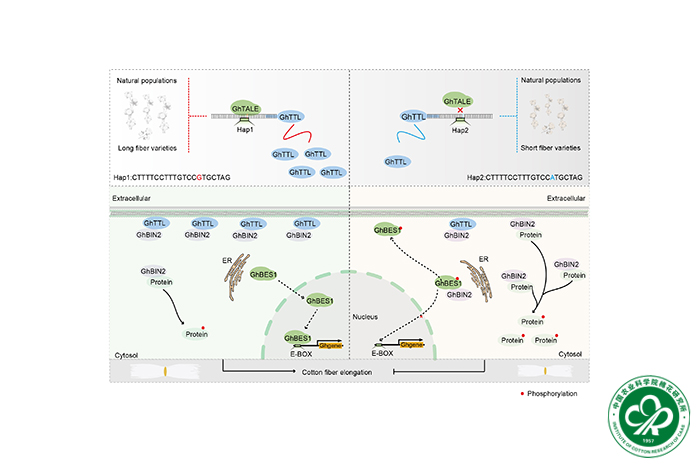- Location : Home» Newsroom
Natural variation in the GhTTL promoter modulate cotton fiber elongation through the GhTALE-GhTTL-GhBIN2 module
In cotton, fiber length is a key determinant of industrial utility and is one of the most important agricultural traits shaped during domestication. However, the genetic determinants and molecular mechanisms underlying natural variation in fiber length remain poorly characterized. In this study, we identified GhTTL as a critical positive regulator of fiber elongation through genome-wide association study (GWAS). Natural polymorphisms in the cis-regulatory element of the GhTTL promoter region were found to significantly affect its binding affinity for the transcription factor GhTALE, thereby modulating GhTTL expression across diverse cotton populations. Mechanistic investigations revealed that GhTTL interacts with GhBIN2, a central negative regulator of the brassinosteroid (BR) signaling pathway, and anchors it to the cell membrane. This reduces cytoplasmic GhBIN2 levels, preventing it from associating with GhBES1, a master transcription factor of BR signaling. As a result, GhBES1 localizes to the nucleus, where it promotes fiber cell elongation. These findings elucidate the molecular basis of natural variation in cotton fiber length and provide deeper insights into the regulation of fiber elongation. In addition, this study identifies potential targets for genetic improvement to enhance cotton fiber quality and yield.